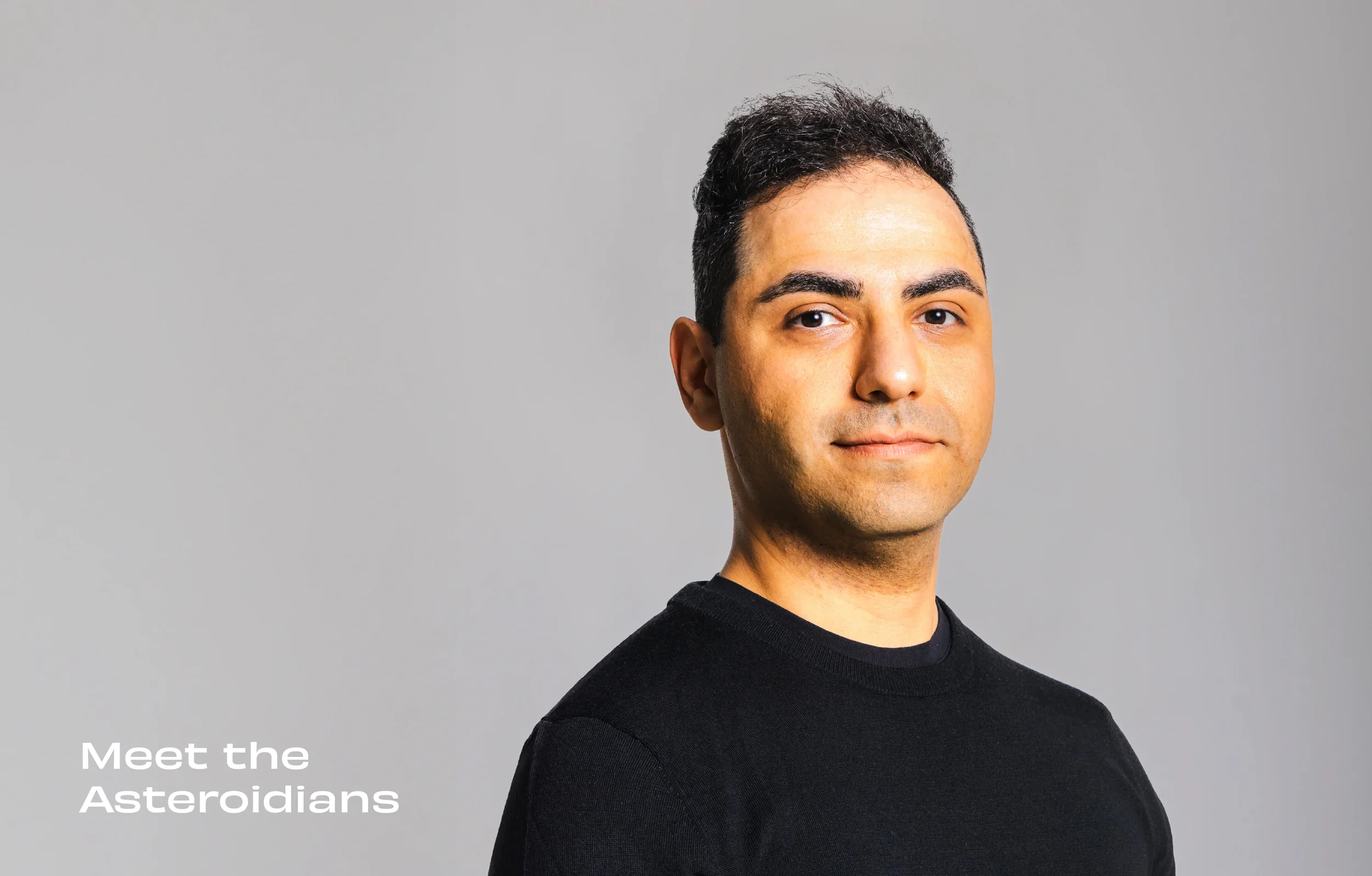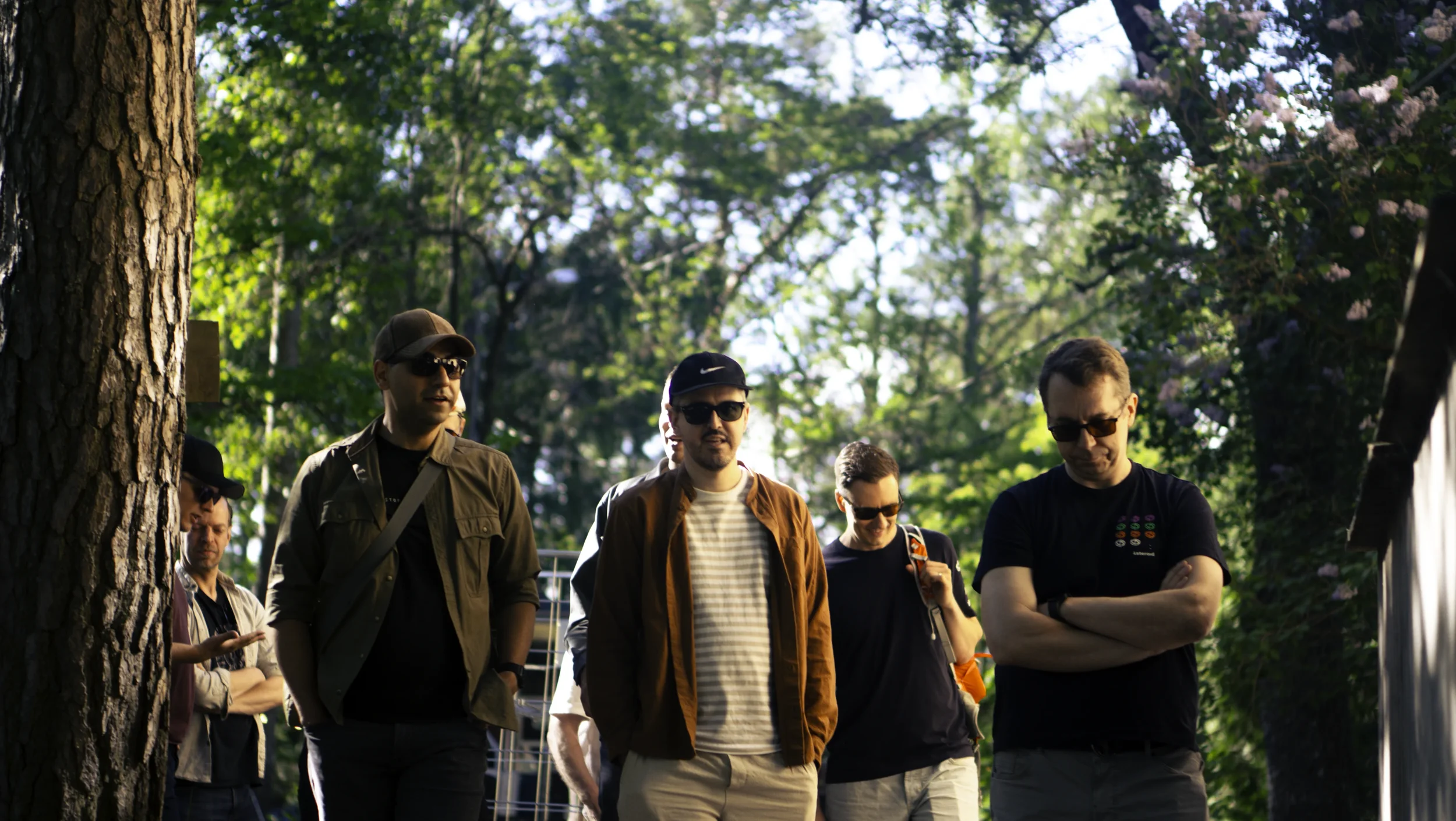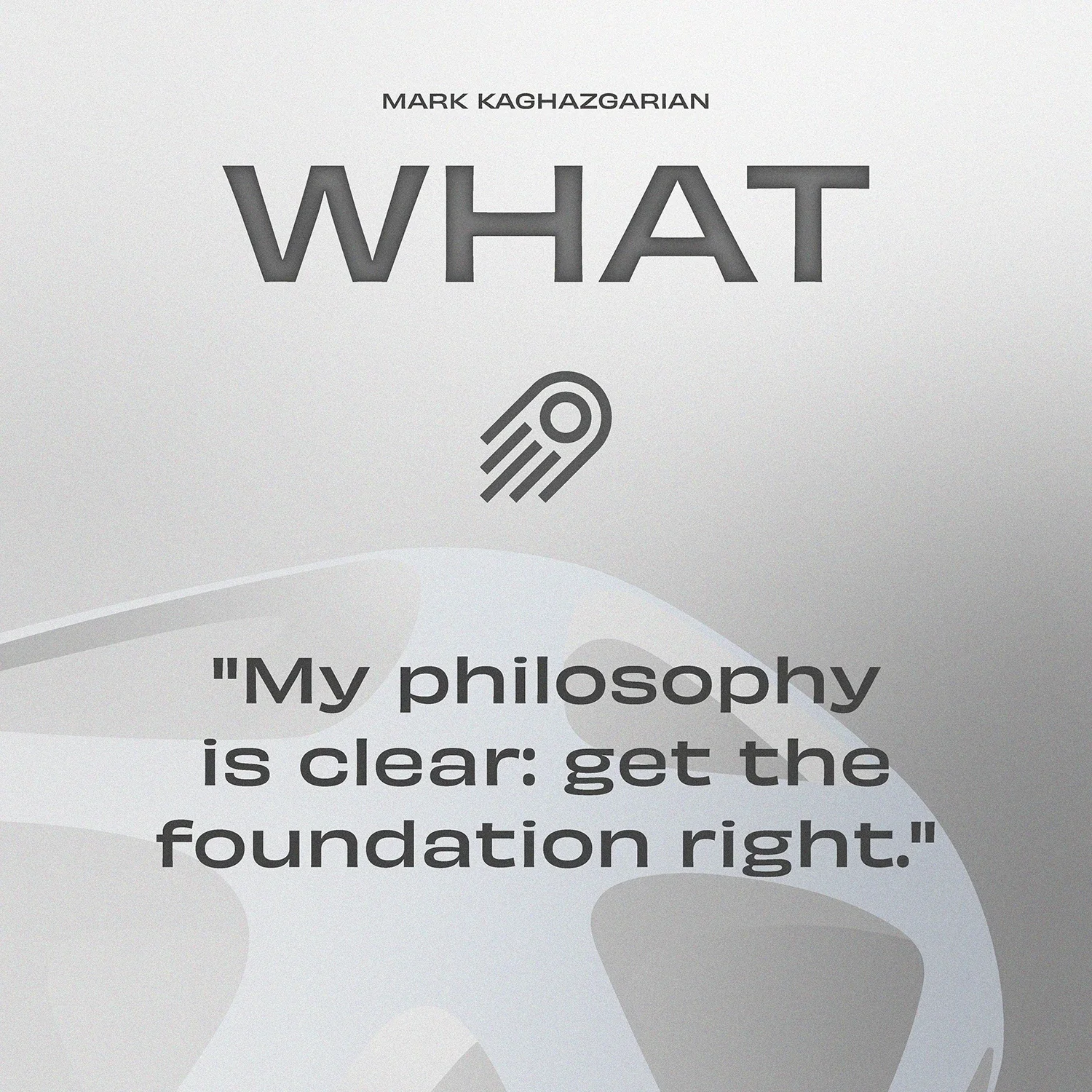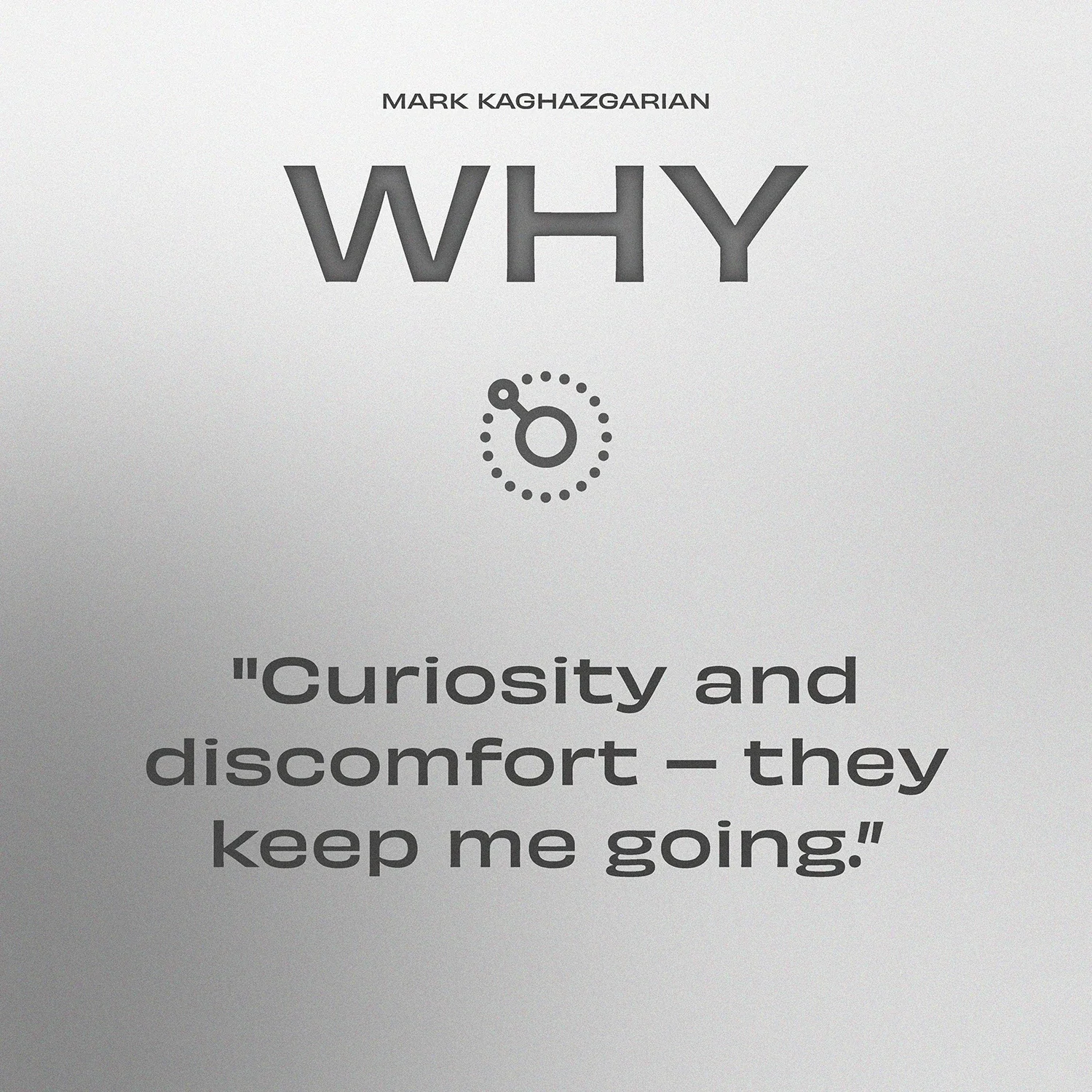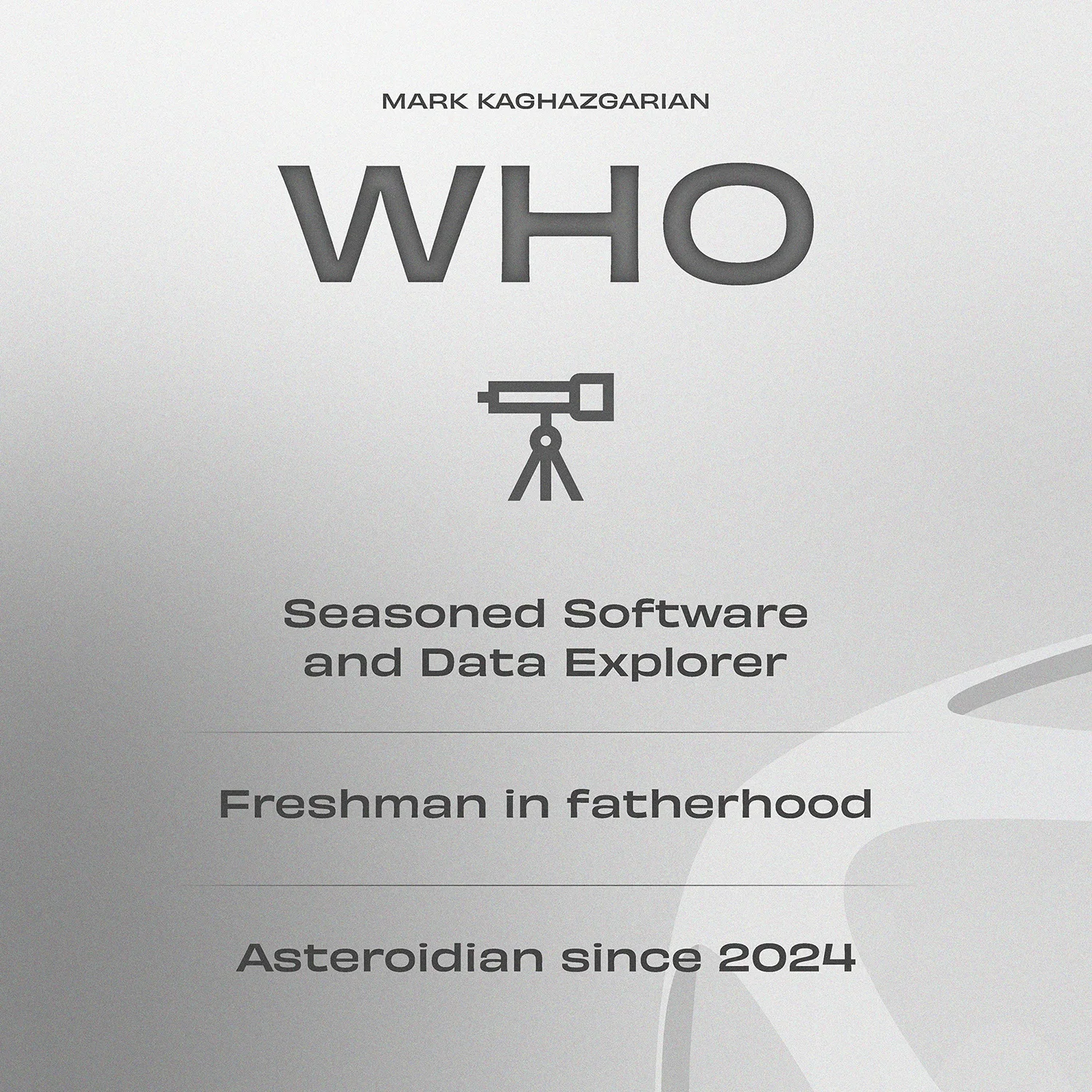Meet the Asteroidians: Mark Kaghazgarian, Senior Data Consultant, in tech since 2004
Asteroid is building an inspiring workplace for experienced software engineers, and helping businesses and society level up their digital game. Every Asteroidian is a co-owner of the company and this blog series introduces them one by one.
An old joke says that a specialist is a person who knows more and more about less and less, until finally they know everything about absolutely nothing. Whether you find this funny or not, it can sometimes be true.
That’s why it’s a bit odd and exciting to find a seasoned developer who has dug really deep into a domain and then moved to another domain as demanding as the previous one. How did this happen for senior data consultant Mark Kaghazgarian, who moved from an experienced full‑stack developer to a data engineer?
"Oh, that’s a hard one", says Kaghazgarian. Not a fair question to start with. So let’s take one step back and let him tell us how he first got into software development.
Early beginnings in software
"Well, it never felt like a deliberate choice. Coding has been part of me for as long as I remember", says Kaghazgarian. "I went from joystick jockey to tinkering with a keyboard, and by 13 or 14, I had my first paid project for an advertising company. For the next 15 years, I built production systems, mostly web apps, then moved into backend-as-a-service: authentication, push notifications, intra-cluster comms. One highlight was implementing a custom messaging protocol, inspired by MQTT, directly over TCP/IP – a fun dive below OSI Layer 7."
Curiosity as a career engine
Okay, thrown in at the deep end, one might say? Kaghazgarian smiles politely. "If you think so", he seems to say. But what kept him going after such a rapid start?
"Curiosity and discomfort", he says. "Each time I got comfortable – or was promoted – I treated it as a cue to explore again. I’ve learned a lot from my mistakes; they’ve been the fuel for the next iteration."
That must be true. We should always be ready to step out of our comfort zone, but sometimes it’s easier said than done. But can we now get back to the first question about the data transition?
"Yes, we can. But it wasn’t a sudden switch; it was more of a process", explains Kaghazgarian. "I started getting to know distributed databases like Cassandra and MongoDB around 2008–2009. These databases didn’t just scale; they changed how I thought about systems. Concepts like CAP and schema flexibility showed the trade-offs in building resilient, high-volume architectures – very different from the strictly normalized world I came from. I like systems engineering, and data raised the stakes: you’re designing for correctness, lineage, ownership, and long-term operability at scale."
From pipelines to platforms
So, presumably, some clients and companies needed this kind of competence?
"Yes, of course. Slowly, over the past decade, I shifted more and more towards data, although the roles can sometimes be a bit fuzzy. I built pipelines and analytics platforms, then moved into data platform design and operations as a data engineer, architect, and DataOps engineer", Kaghazgarian lists. "Today I help clients modernize their data ecosystems with event-driven, cloud-native architectures, good governance, and operational excellence so analytics and ML deliver reliable value."
If we put your role briefly, how would it look?
"The leverage is clear: make data dependable and easy to discover by understanding business expectations and mapping data flows and pain points", summarizes Kaghazgarian. "And designing modular and operable domain-aligned data products is essential. This means SLAs, standardized data contracts, and using metrics and explicit trade-offs to guide decisions. My philosophy is clear: get the foundation right, deliver quick wins to build trust, then modernize incrementally to scale."
Asteroid’s summer party, Villa Vuosanta, 2024
AI at machine speed, data at human speed
In the IT sector, there’s no bigger issue for discussion than AI, at least it seems that way.
"The reason for this is simple. AI moves at machine speed, but most enterprise data still moves at human speed. Building ML systems isn’t just model choice – it’s about end-to-end architecture: ingestion, features, labeling, deployment, monitoring. Two things make or break it", Kaghazgarian stresses. "Treat data quality as a first-class feature, and treat governance and security as enablers of speed through policy-as-code and conscious trade-offs, not just a lower error metric."
Now it seems we’ll have to get back to one of the first questions, namely: what has kept you going? Or let us put it this way: what is the most rewarding part of your work?
Kaghazgarian thinks for a while.
"The rare moment when everything just works – pipelines flow, dashboards refresh, data is clean, and no one emails about missing reports. It feels like winning the lottery. Then a new alert lands, and it’s back to work – happily."
Finding a professional home at Asteroid
And then comes a happy moment for the interviewer as well. The question is: how did Asteroid become your professional home? A wide smile spreads over Kaghazgarian’s face. "I really love that expression! My professional home, that’s exactly how I felt about the company from day one: straightforward, low on bureaucracy, and genuinely partner-led. I’d followed Eero, whom I knew before, and saw how intentionally the company was growing. Home is a place where you feel safe, and that is how I feel working at Asteroid."
Last but not least, one more thing. The family.
"I’m a freshman in fatherhood, so free time feels priceless. Watching kids explore the world is mesmerising, and I’m trying to soak up this once-in-a-lifetime chapter", says the happy father. "My daughter is a year and a half, and my son is four years old. They both learn something new every day, and I try to do the same from them."
A weekend turns into a bug hunt squad deployment in Korkeasaari, 2025
In this blog series, we ask Asteroidians what the interviewee is like as a colleague.
Eero Kurkela: What kind of person is Mark?
Catching up with Mark always makes my day. He’s such a sharp and considerate professional as well as a person – and positive energy and insightful views have a tendency to spread. Currently we’re helping out a mutual client in complementary roles, and it’s undoubtedly Mark who keeps delivering the brightest ideas and most tangible impact!
The article is written in collaboration with a partner of Asteroid.

